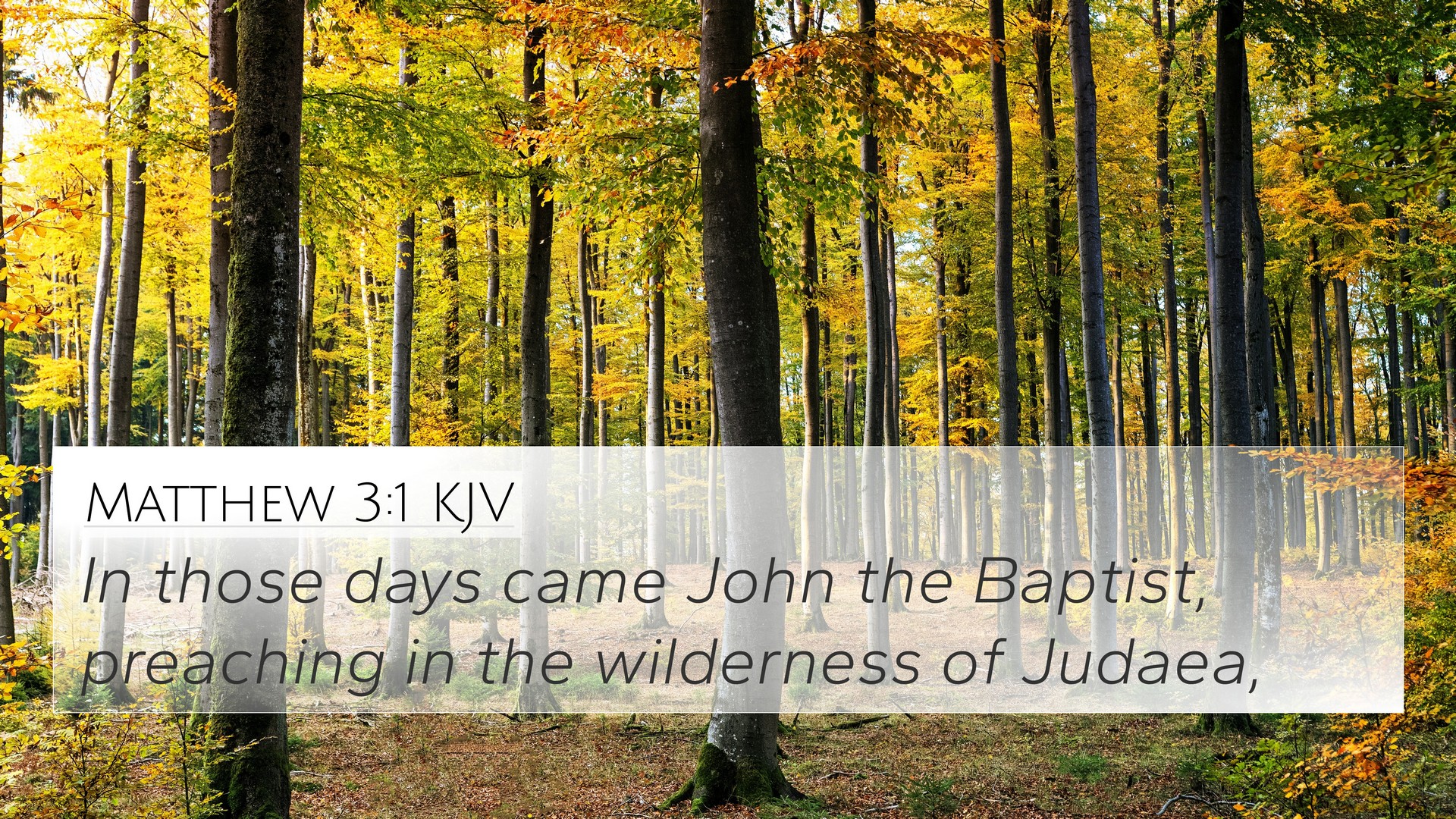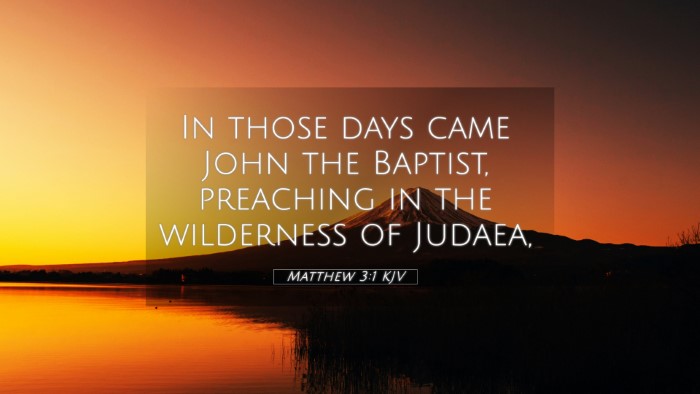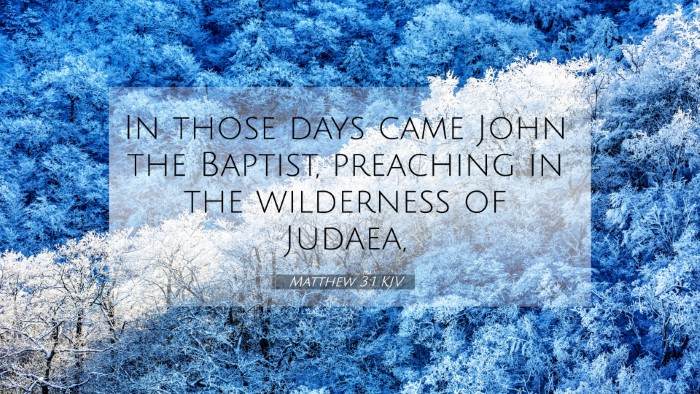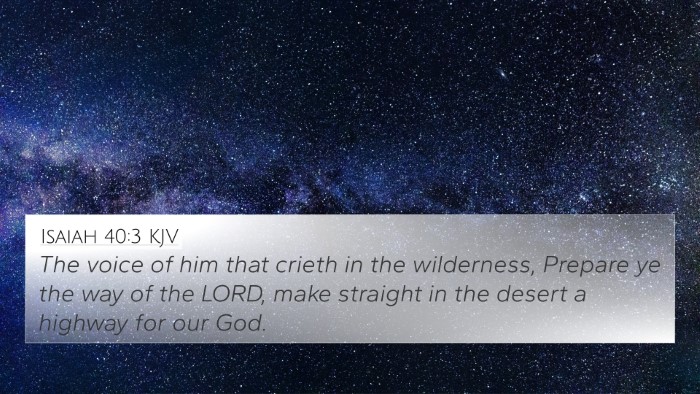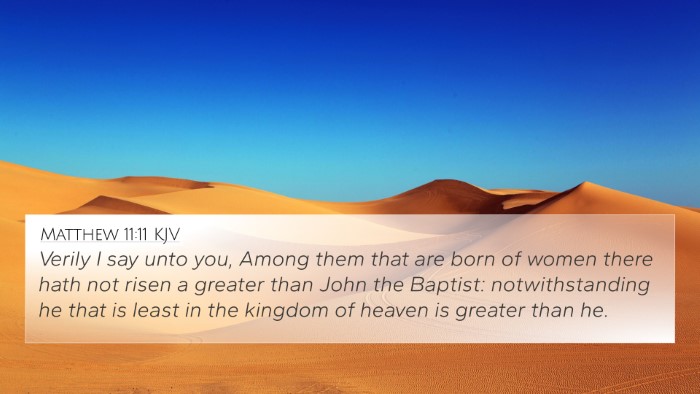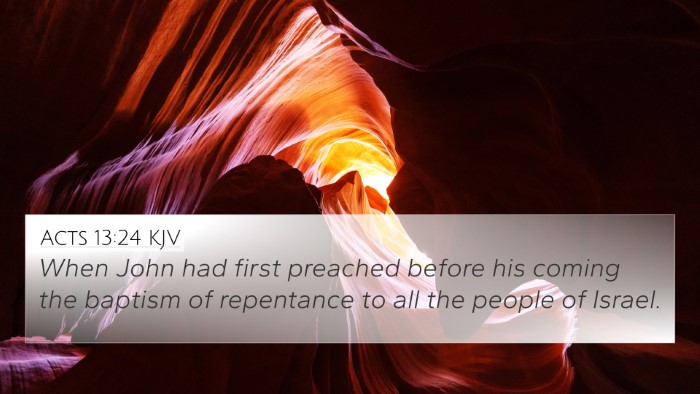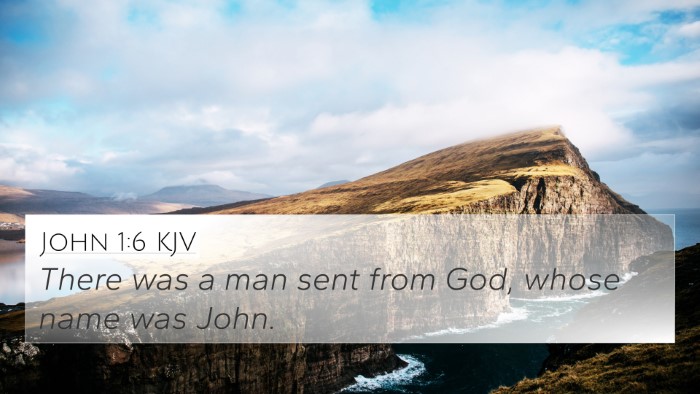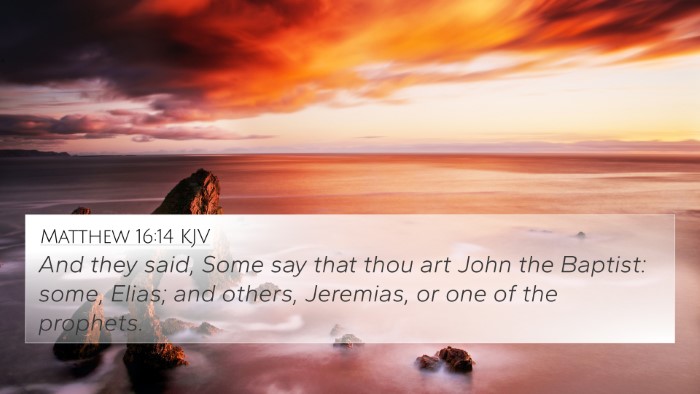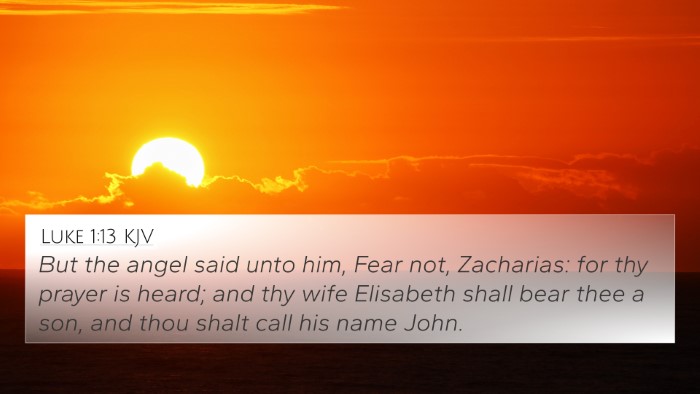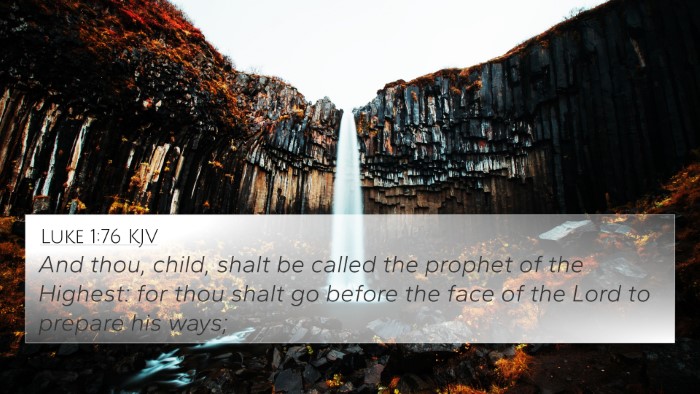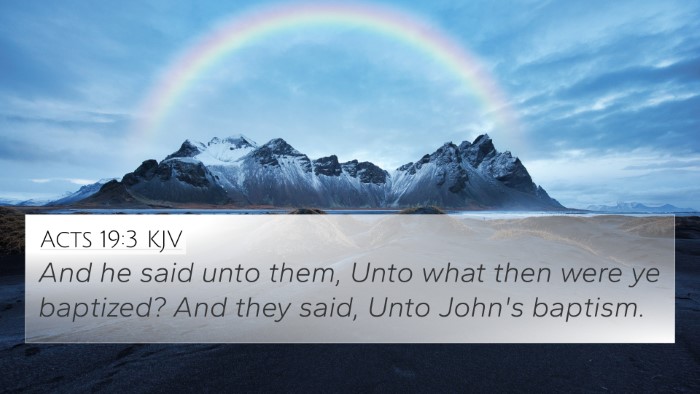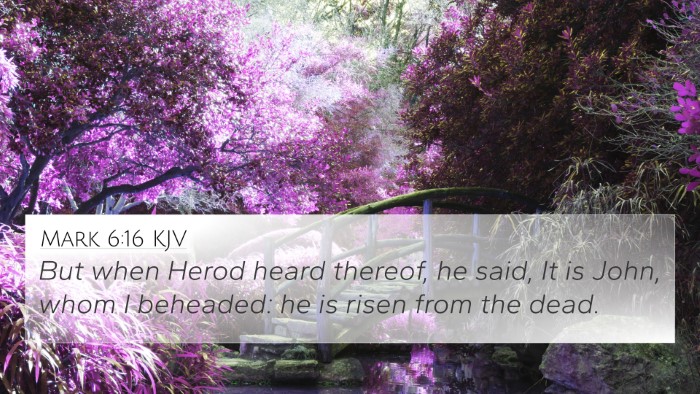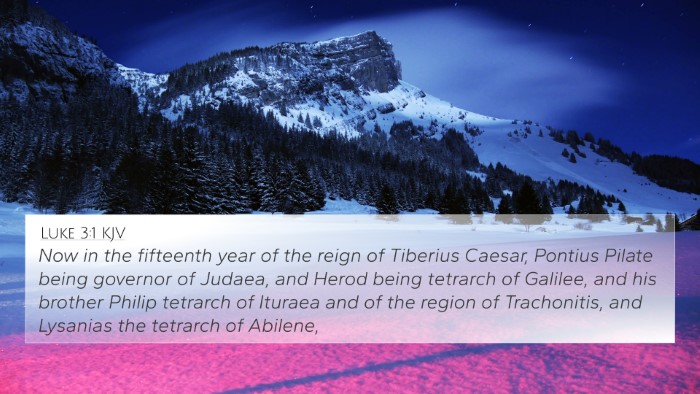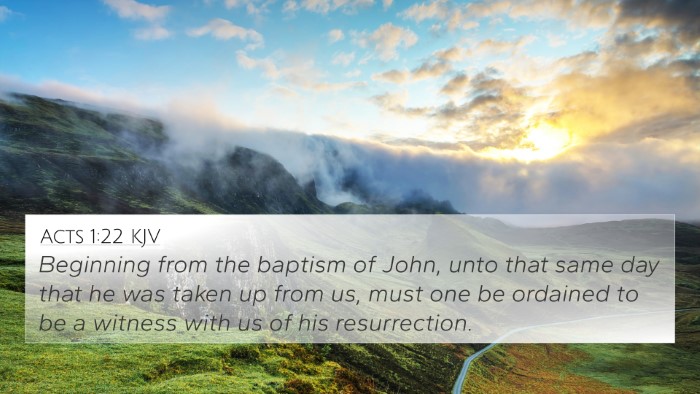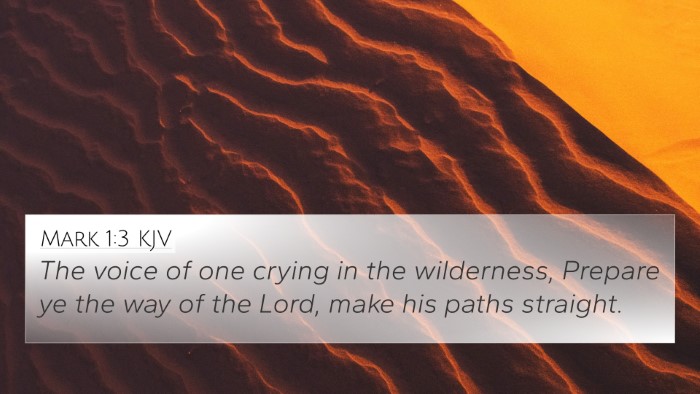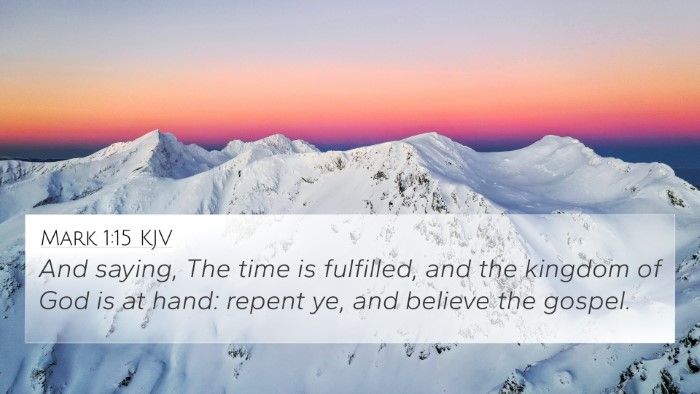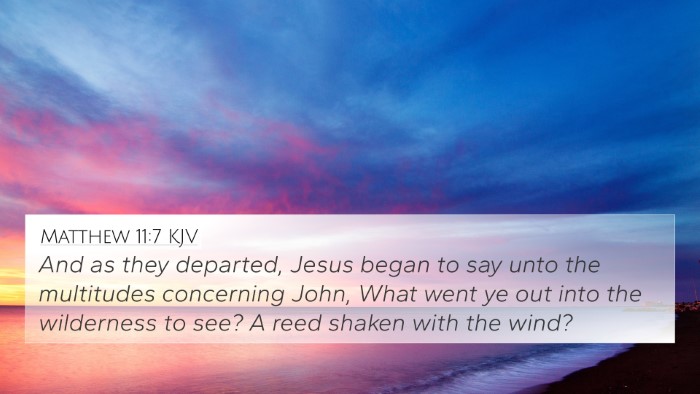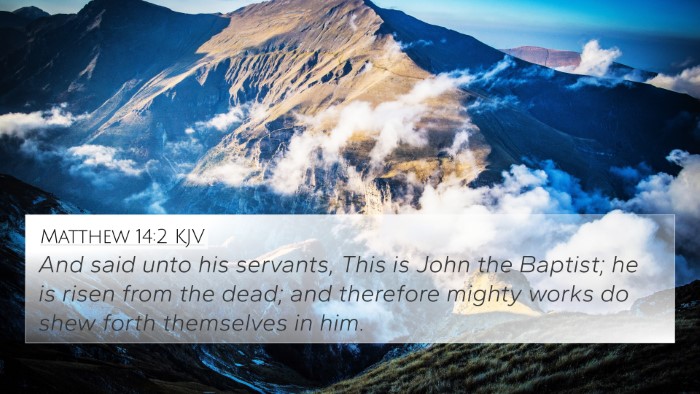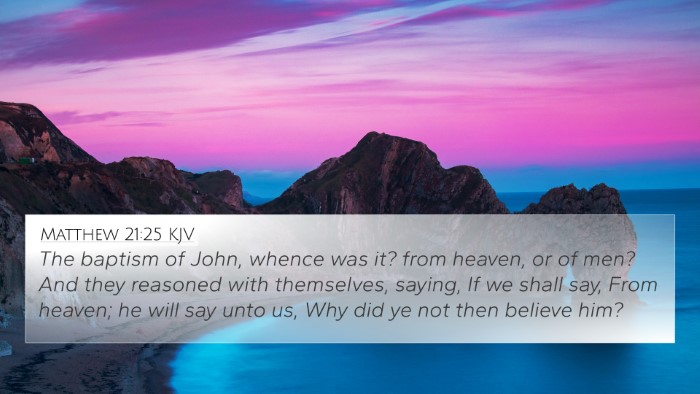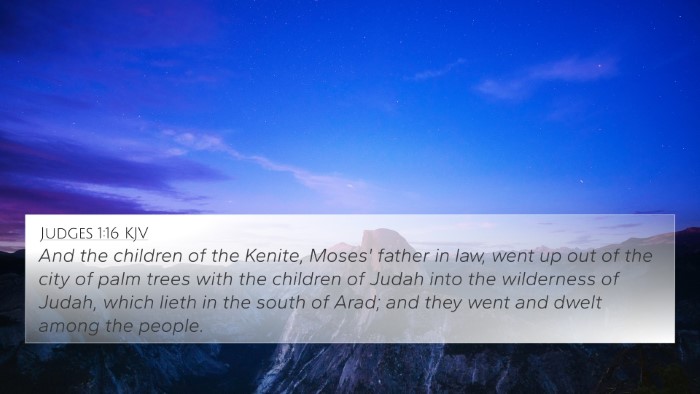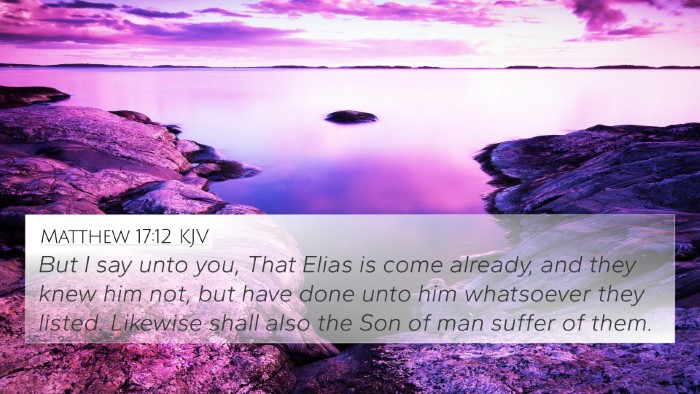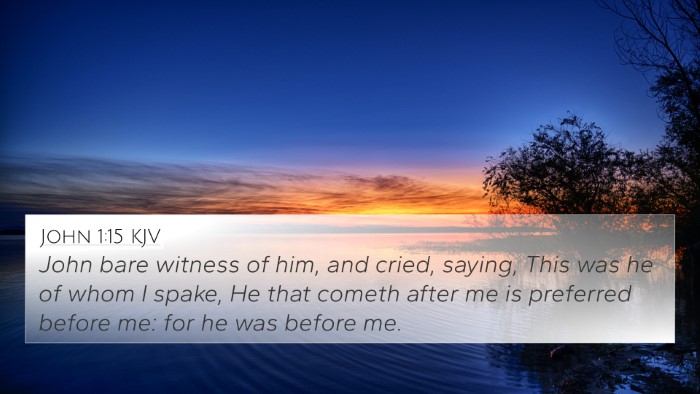Bible Verse Summary and Insights: Matthew 3:1
Bible Verse: "In those days came John the Baptist, preaching in the wilderness of Judaea." - Matthew 3:1
Understanding Matthew 3:1
Matthew 3:1 introduces John the Baptist, an essential figure in the New Testament, who serves as the forerunner to Jesus Christ. This verse emphasizes the unexpected place of John's ministry - the wilderness of Judaea, which symbolizes a return to spiritual basics and a calling to repentance away from the distractions of society.
Commentary Insights
- Matthew Henry:
Henry notes that John's appearance in the wilderness represents a prophetic fulfillment of Isaiah's words regarding a voice crying in the wilderness (Isaiah 40:3). The wilderness serves as a stark contrast to the corrupted religious environment of the time, highlighting God’s intention for repentance and a call to return to simplicity.
- Albert Barnes:
Barnes emphasizes the significance of John’s prophetic role, indicating that he was chosen to prepare the way for the Messiah. His boldness in preaching in the wilderness underscores a divine mission to awaken the hearts of the people, preparing them for the forthcoming ministry of Jesus. This underscores the importance of recognizing the need for a heart change before encountering divine revelation.
- Adam Clarke:
Clarke elucidates that John's message was one of repentance, symbolizing the need for inward transformation. The wilderness represents a spiritual desolation that mirrors the state of Israel during that period. Clarke also highlights the significance of John’s role as fulfilling Old Testament prophecy and setting the stage for the significant events that would follow the arrival of Jesus Christ.
Cross-References for Matthew 3:1
This verse connects deeply with several other biblical texts, enhancing its understanding through the scripture's interconnectedness. Here are some key cross-references:
- Isaiah 40:3: "The voice of him that crieth in the wilderness, Prepare ye the way of the Lord." - This verse is a direct prophetic reference to John the Baptist.
- Malachi 3:1: "Behold, I will send my messenger, and he shall prepare the way before me." - Illustrates anticipatory prophecies about John's mission.
- Luke 3:3-6: Provides a parallel account detailing John’s ministry and messages of preparation.
- John 1:23: "I am the voice of one crying in the wilderness, Make straight the way of the Lord." - John's self-identification as the fulfillment of prophecy.
- Matthew 11:10: Jesus identifies John as the messenger prophesied to prepare the way for His coming.
- Acts 13:24: Refers to John’s preaching of repentance before Jesus' public ministry commenced.
- Mark 1:4: Shares a similar account of John the Baptist's message and baptism for repentance.
- Matthew 28:19-20: The Great Commission emphasizes the continuation of John's call to spread the gospel of Christ.
- Romans 10:14-15: Highlights the necessity of preaching and the call to raise voices for God,, resonating with John's mission.
- Hebrews 1:1-2: Talk about how God spoke through prophets in the past, culminating in the speaking through His Son, aligning with John's role.
Connections between Bible Verses
This verse forms various thematic connections across the scripture: it embodies the essence of prophetic ministry, heralding repentance, and divine revelation. Understanding these connections aids believers in grasping the sequence and significance of biblical events.
Linking Bible Scriptures
The cross-references listed encourage deeper investigation into John’s role as a precursor to Christ, depicting the narrative arc from prophetic anticipation in the Old Testament to fulfillment in the New Testament. By studying these linked texts, readers can collectively piece together the importance of preparation in God's plan.
Comparative Bible Verse Analysis
When analyzing comparative verses, one can observe parallels such as the thematic resonance between John’s call to repentance and the greater call towards discipleship in Jesus’ commissions, highlighting a continuity in God’s redemptive plan.
Bible Verse Parallels
John's ministry can be paralleled with that of other prophets like Elijah, enhancing our understanding of tradition and continuity in God's dealings with humanity. Each calls forth a response from the people, signifying a larger narrative of repentance leading to redemption.
Tools for Bible Cross-Referencing
Utilizing tools such as a Bible concordance or a cross-reference Bible study guide can further illuminate the interconnectedness of scripture, providing enriching insights and different perspectives on the same themes.
Final Thoughts
Matthew 3:1 is not just a standalone verse but a pivotal moment that bridges the old with the new, setting the church on a course to understand the significance of preparation and repentance in relation to the coming of Jesus Christ. By examining cross-references, believers can deepen their understanding of how individual verses contribute to the overarching narrative of scripture.
